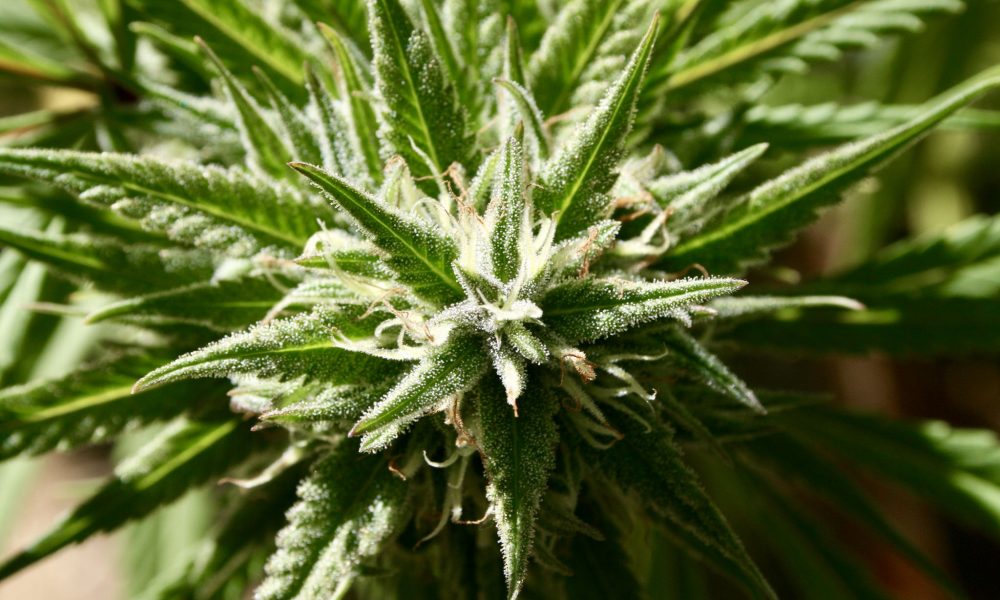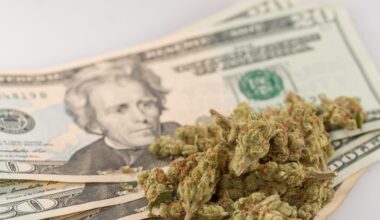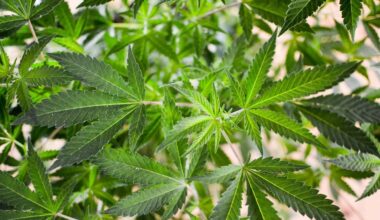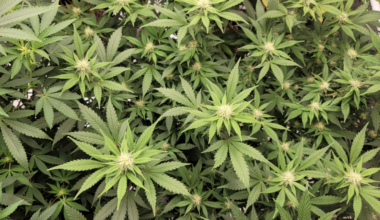A pair of GOP congressmen is asking key cabinet officials in the Biden administration to study the environmental impacts of marijuana cultivation—acknowledging both the intensive electrical demand that growing cannabis can involve as well as the role that legalization can play in setting regulations for the plant.
Reps. Earl Carter (R-GA) and Doug Lamborn (R-CO) sent the letter to the heads of the Department of Energy (DOE), Interior Department, Environmental Protection Agency (EPA) and Energy Information Administration on Monday.
It argues that, as Congress considers legislation to federally legalize marijuana, lawmakers need to better understand “serious concerns regarding the energy and resource-intensive nature of marijuana cultivation.”
The anti-legalization lawmakers said that they have “reservations regarding marijuana cultivation’s subsequent emissions and believe more research is needed on this industry’s rapidly growing demands on our country’s energy systems, along with its effects on our environment.”
The letter isn’t necessarily advocating against legalization, despite the overall prohibitionist views of the signatories. And it even recognizes differences in the impacts of regulated state markets and illicit operations, which is a point of bipartisan interest.
“The legalization of marijuana in several states has fueled a sharp increase in the supply of marijuana products coming to market,” it says. “As such, marijuana cultivation operations have expanded and adapted to optimize the speed of development… In fact, indoor marijuana cultivation consumes 709 kBtu/sq ft, while the typical home or office building only consumes 40-50 kBtu/sq ft.”
With respect to energy demands, that’s been a focus of state cannabis regulators, particularly as it concerns indoor cultivators. Other advocates and stakeholders have suggested that ending prohibition and allowing interstate marijuana commerce could minimize energy use by allowing states better suited for more sustainable outdoor cultivation to market their products to states with different climates.
Morgan Fox, political director of NORML, told Marijuana Moment on Monday that while he appreciates that the letter cites certain studies and reports about cannabis and the environment, “there’s already a tremendous amount of additional research going on that’s both supported by the industry and regulators [and] actively working on solutions.”
“So this effort [by the lawmakers] seems like a little bit of a step back—or, at the very least, unnecessary,” he said. “But it’s an issue that I think everybody is paying really close attention to, and one that’s created some unique problems for the cannabis industry.”
The letter, which was first reported by The Washington Examiner, also talks about water usage for cannabis grows, citing reports that say the plant requires twice as much water as other crops such as “maize, soybeans, wheat and wine grapes.”
Water conservation problems have also emerged in illicit grows that have “diverted precious water resources throughout the country,” the lawmakers said, pointing to a report for the Office of National Drug Control Policy (ONDCP). Those illegal cultivators have also been blamed for utilizing pesticides and fertilizers that are harmful to the environment and wildlife.
In raising that specific issue, the congressmen seem to be tacitly recognizing that regulations in states that have legalized marijuana can play a role in curtailing some environmental harms, even though illicit growers still exist within legal cannabis states.
Reports about energy usage in legal states “do not account for the extensive illegal market that still exists and does not face energy or emission regulations that legal operations do,” they wrote, acknowledging the role that legalization can play in mandating that cultivators meet certain standards.
In a phone interview with Marijuana Moment last week, pro-legalization Rep. Jared Huffman (D-CA) separately said that “there are some important nuances” when it comes to cannabis policy and the environment.
He said that, even amid extreme drought conditions in California, there are water sources that should be providing resources to the community and industry that are instead being diverted by illicit growers.
“We have not done a very good job of lifting up the legal market so that we can eliminate the black market—and that black market has really unacceptable environmental impacts,” he said.
California has taken some specific steps to ameliorate the issue. For example, officials announced last year that they were soliciting concept proposals for a marijuana tax-funded program aimed at helping small cannabis cultivators with environmental clean-up and restoration efforts.
—
Marijuana Moment is tracking more than 1,500 cannabis, psychedelics and drug policy bills in state legislatures and Congress this year. Patreon supporters pledging at least $25/month get access to our interactive maps, charts and hearing calendar so they don’t miss any developments.![]()
Learn more about our marijuana bill tracker and become a supporter on Patreon to get access.
—
The GOP-led letter, which the prohibitionist group Smart Approaches to Marijuana (SAM) says it helped to draft, states that the “demand for prioritizing electricity uses and for increased energy efficiency is a growing concern for the American public,” adding that “it is essential that the nation understand the burden marijuana cultivation puts on the electrical grid and the environment” as Congress works to advance cannabis reform legislation.
To that end, the lawmakers are asking EPA, DOE and other agencies to study the issue and respond to a series of questions:
-How does current marijuana legalization impact state energy consumption and emission levels?
-How would federal legalization of marijuana affect national energy consumption and emission levels?
-What is the anticipated growth of energy usage and emissions from the marijuana industry?
-How will growing energy demands from the marijuana industry affect the reliability of our electric grid?
-What impact do illegal marijuana growing operations have on the country’s water supply?
-What harms do illegal marijuana growers’ use of various fertilizers, herbicides, and pesticides pose to wildlife, habitats, and humans in the United States?
The congressmen said they want a response from the agencies by November 30.
“As Congress debates whether to advance marijuana legalization, the American people must have a better understanding of the environmental costs of this rapidly growing industry,” Carter and Lamborn wrote. “If the Administration seeks to reduce emissions and protect our environment as aggressively as it has previously committed, we must have a comprehensive view of where emissions and other pollution occurs, as they will likely only grow.”
SAM President Kevin Sabet argued in a press release about the letter that the “public deserves to know the full scope of the problem before rushing to legalize.”
“This industry has a vested interest in growing high-potency marijuana as quickly and cheaply as possible, regardless of the environmental impacts,” he said. “Legalization’s climate impact unfortunately often goes unmentioned in the marijuana policy space. I applaud Congressmen Carter and Lamborn for taking a lead on this issue.”
Read the lawmakers’ letter to the agency heads on marijuana and the environment below:
New Jersey Employers Can’t Punish Workers Based On A Marijuana Test Alone, State Officials Say
Photo courtesy of Brian Shamblen.
Medical Disclaimer:
The information provided in these blog posts is intended for general informational and educational purposes only. It is not a substitute for professional medical advice, diagnosis, or treatment. Always seek the advice of your physician or other qualified healthcare provider with any questions you may have regarding a medical condition. The use of any information provided in these blog posts is solely at your own risk. The authors and the website do not recommend or endorse any specific products, treatments, or procedures mentioned. Reliance on any information in these blog posts is solely at your own discretion.







